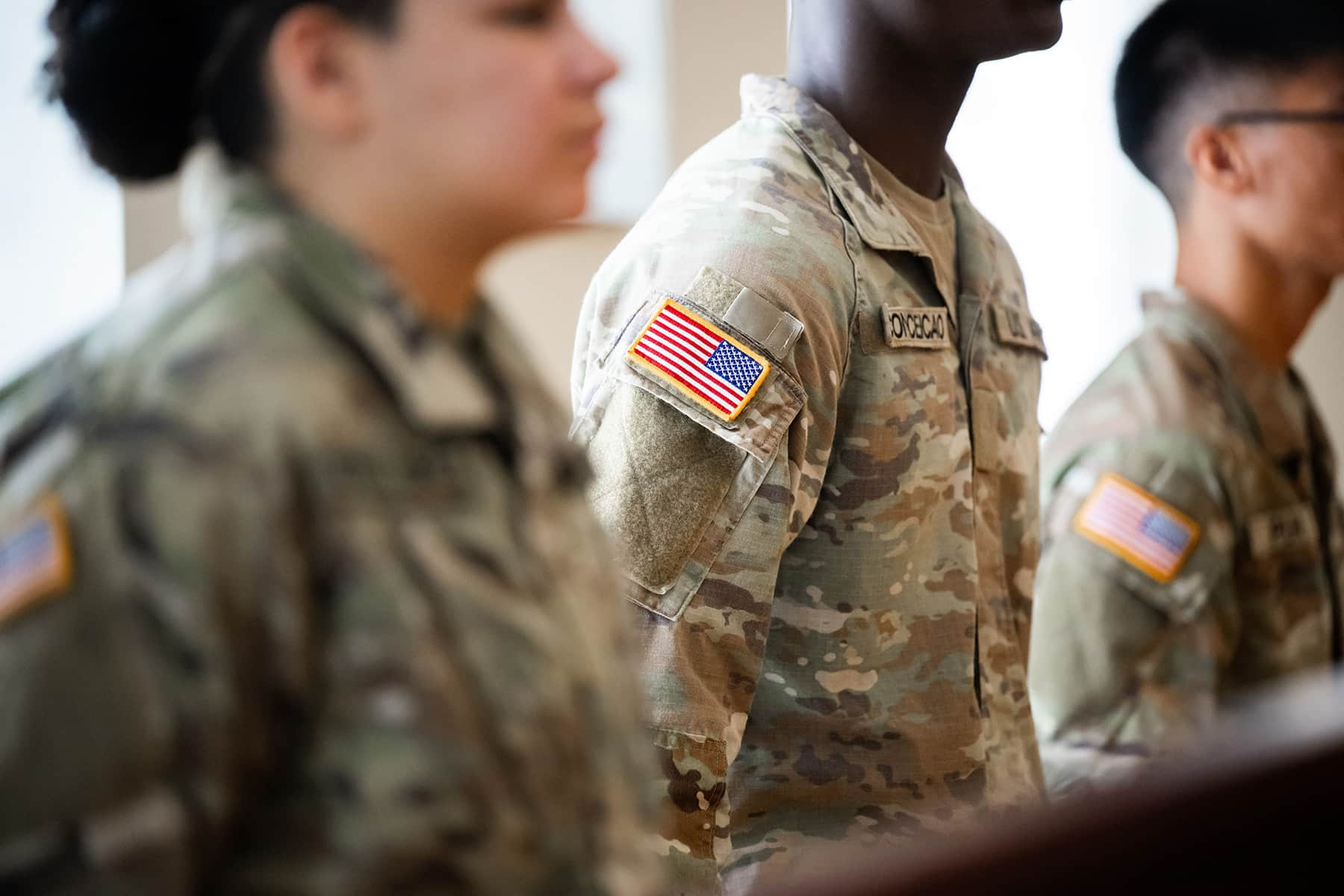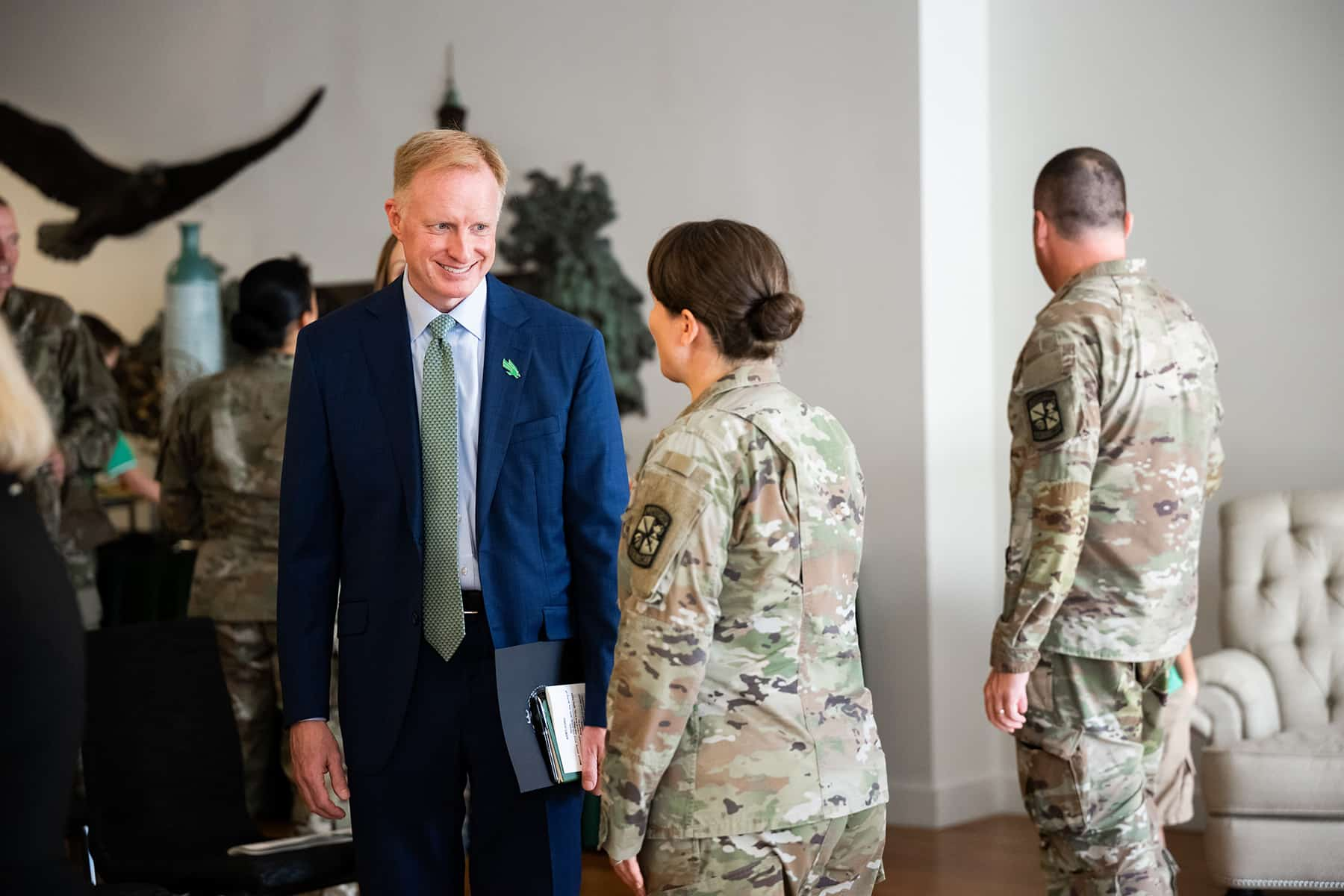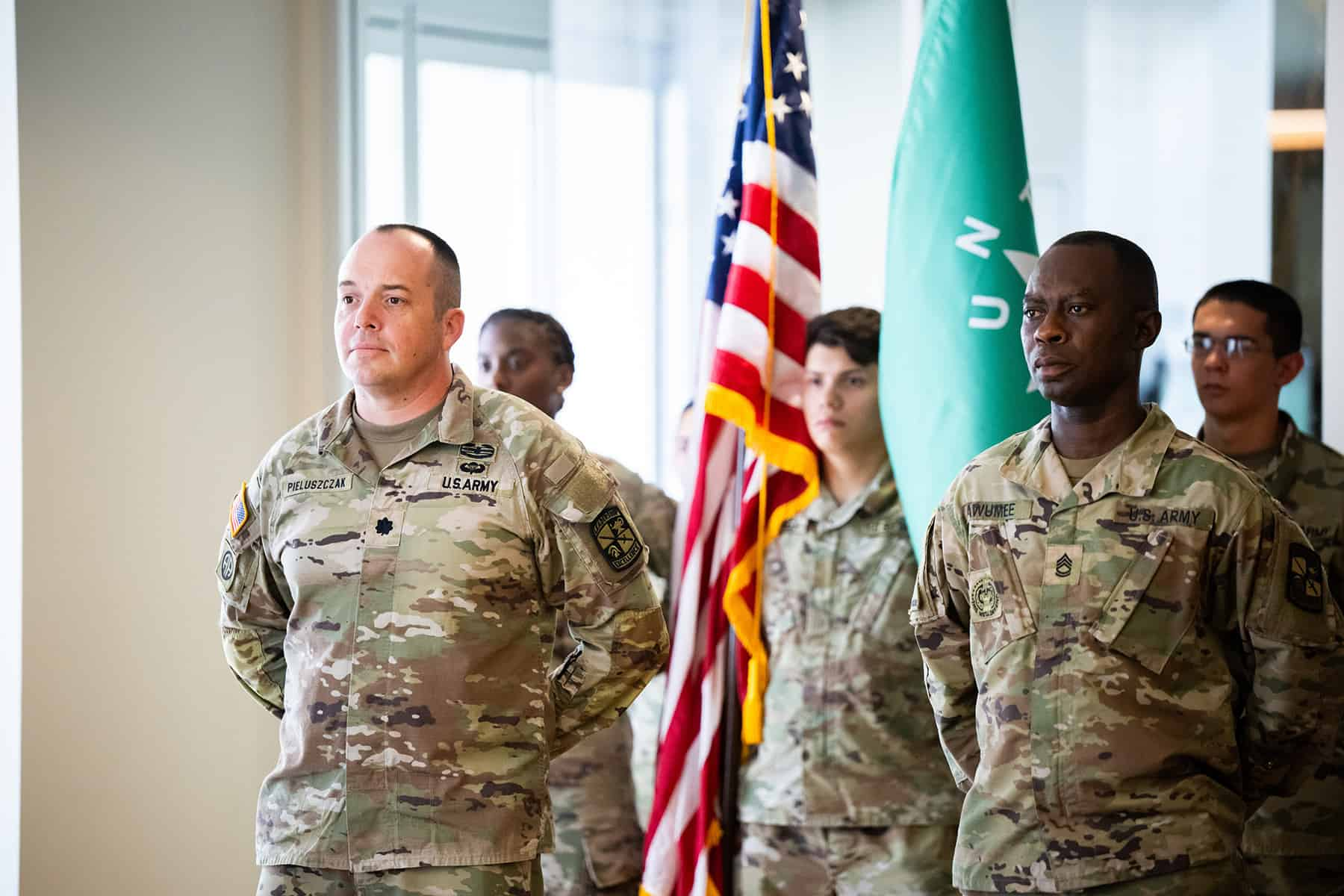
DENTON (UNT), Texas — The University of North Texas Army ROTC battalion received host program status this fall, bringing additional faculty members and resources
to student cadets in the Dallas-Fort Worth area.
A host program is a university that acts as the home site for a regional Reserve Officers’
Training Corps, or ROTC, battalion. Cadets from neighboring schools — sometimes referred
to as extension or cross-town schools — travel to host program sites for drills, training,
classes and related ROTC activities.
Capt. Trae Wolfe, executive officer and assistant professor of military science, said
UNT’s geographic location and strong growth over the past decade made the university
a natural choice for a new host program.
“The Dallas-Fort Worth metroplex is one of the Army’s top ten recruiting areas. When
you pair that with more and more students wanting to attend UNT, it makes sense that
our university was chosen for this designation,” Wolfe said.

Detachments with host program status receive additional faculty appointments, including
a professor of military science and senior military science instructor, as well as
support staff to provide more assistance to student cadets. Host programs are also
awarded financial resources to accommodate a greater number of participants. But according
to Wolfe, one of the greatest benefits to student cadets will be the resources and
programming UNT already offers.
“Some universities use city parks or football fields for training, but our cadre has
access to land in and around Denton. Student cadets who use real terrain to learn
maneuvers in open formations are going to be more adept service members,” Wolfe said.
“Becoming a host program means more people get that opportunity.”
Wolfe said those advantages in tactical training, paired with UNT’s highly trained
faculty and robust academic programs, will set UNT’s student cadets apart when they
graduate and commission into the U.S. Army.
And while the detachment’s host program status will benefit individual student cadets,
the additional resources and training those cadets receive will also benefit the Dallas-Fort
Worth area as well as the state. Wolfe said the detachment hopes to create more community
connections that will allow the cadre and cadets to assist in outreach like natural
disaster relief and volunteer work.

As of Fall 2025, Lt. Col. Scott Pieluszczak serves as the battalion’s professor of
military science and leader. Pieluszczak expressed his excitement over joining the
detachment at a pivotal moment for its growth.
“Elevation to host program status signifies commitment and excellence for North Texas,
the university and the student body,” he said. “We will be a trusted connection for
military-civic engagement and community service, and a partner of choice for both
academic and military professions throughout the region.”
Cadet Battalion Commander Dylan Hazlett, a business analytics senior graduating in
Fall 2025, expressed excitement for the change and the resources that have come with
it. Hazlett, who is the detachment’s most senior cadet, also credited Army ROTC with
preparing him for his future.
“One of the program’s key focuses is developing cadets’ leadership abilities. Strong
leadership skills will benefit us not only as Army officers, but also in our civilian
careers,” he said.
Pieluszczak noted that among the countless benefits that come with participating in
an Army ROTC program, one of the most significant is that it provides a clear pathway
from a cadet’s education to their career.
“Army ROTC is a structured, proven path to a career after college. Here at UNT, my
staff and I are dedicated to mentorship and developing leadership and academic rigor
for our students.”